Table of Contents Show
We’re sad to report that yet another popular dispersed camping location is shutting down. Many locations that the Bureau of Land Management has shut down are on the western side of the country, where dispersed camping is more popular. However, today we’re reporting a popular camping spot that sits in the northeast. Let’s take a closer look at this situation!
Where Is Tumbledown Mountain?
The peak of Tumble Mountain sits at 3,000ft in Western Maine. From Augusta, ME, it’s a lovely 55-mile drive that provides an hour and a half of gorgeous Western Maine landscapes. The drive will feel short as you take in the evergreen tree-lined roads and quaint Maine towns along the route.
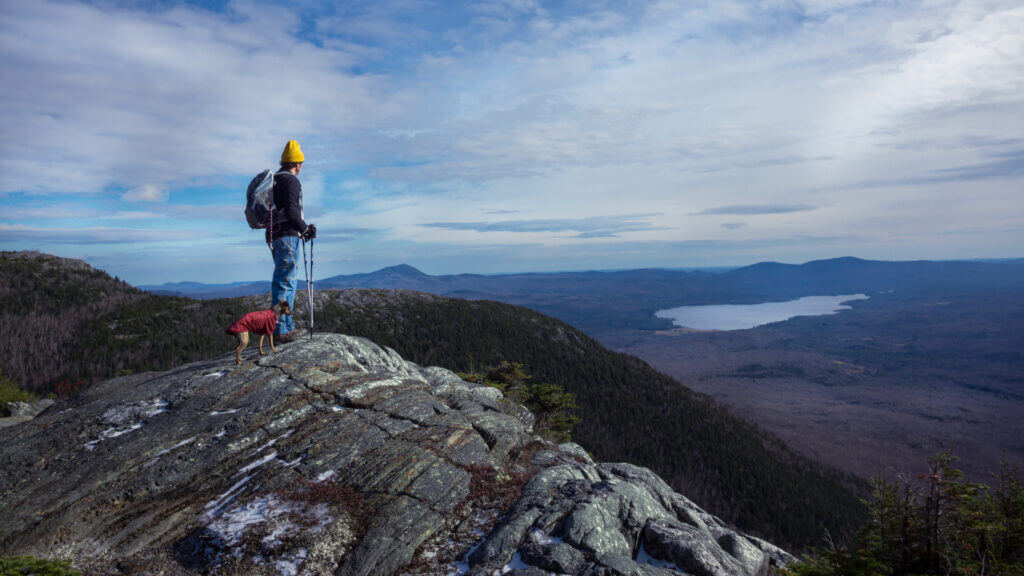
Tumbledown Mountain Popular Camping Area Closed
The Maine Department of Agriculture, Conservation, and Forestry recently announced that misuse of the land is forcing them to prohibit camping at Tumbledown Mountain. The misuse includes cutting down trees, trampling vegetation, and even leaving feces behind. These behaviors are destroying the land and creating an environment that prohibits others from enjoying the land.
Bureau of Parks and Lands Deputy Director Bill Patterson discussed the misuse and said, “Our role is to care for Maine’s treasured outdoor spaces so that the thousands of hikers who love and respect the mountain will find a more enjoyable environment today and for generations to come.”
At one point the Bureau of Parks and Lands considered installing latrines and creating formal camping sites, but the idea wasn’t practical due to the location and sensitivity of the environment. Those wishing to camp can expect to see signs stating that camping is prohibited and Forest Service wardens patrolling the area.
Why Was Camping Banned on this Popular Maine Mountain?
This closure is similar to the many other closures we’ve seen occurring across the country. While there are many groups and individuals that use and respect the land and ecosystem, not everyone does. This location became a weekend party site for many.
Patterson reported, “…on almost any weekend there’s a noticeable group with loud music, big coolers of beer, large fires.” Not only are these large groups destroying the landscape, but they’re ruining the reward for the many others that make the hike to the top of Tumbledown Mountain. We don’t think many families looking for a weekend hiking adventure would be pleased to discover this scene at the end of their hike.
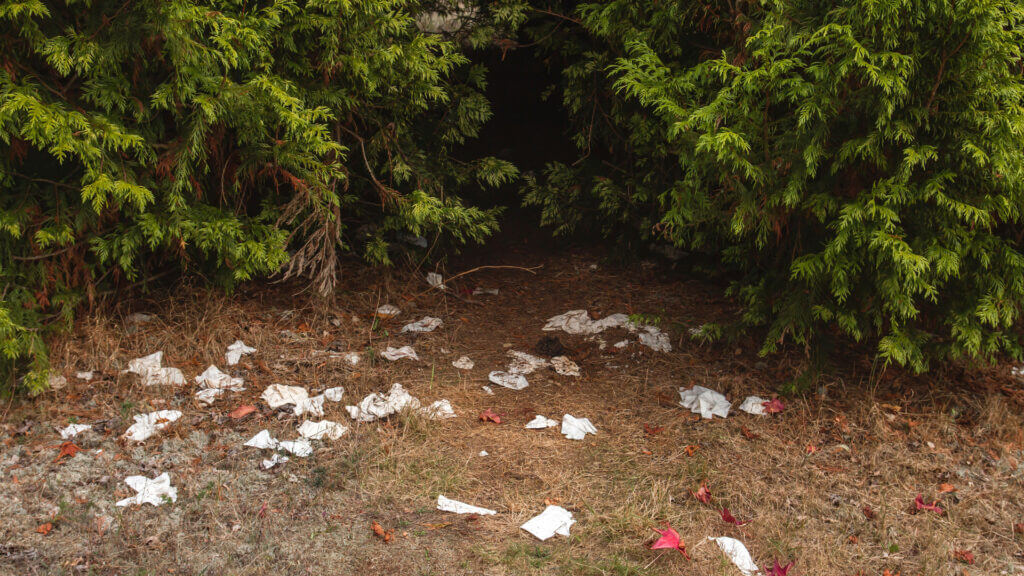
This Isn’t the First Place to Ban Camping Due to Irresponsible Campers
Again, this is nothing new. We’ve seen reports in Nevada, Arizona, and many other places across the country that are no longer options for camping. Some of these locations were incredibly popular spots for camping outside of established campgrounds.
Those misusing the land often don’t stop their destructive behavior just because a spot shuts down. They simply find a new place to throw their parties and enjoy themselves, which often leads to another closure in the future. This is a destructive cycle that ultimately hurts all of us who want to use public lands.
Tips for Responsible Dispersed Camping
There are a handful of things you can do to ensure that you’re using dispersed camping locations respectfully. Let’s see how you can help protect your favorite dispersed camping locations!
Pack It In, Pack It Out
Many of these locations often encourage “pack it in, pack it out” policies. It’s fairly simple to understand and practice; just take with you whatever you brought.
This includes taking your trash with you and not leaving behind food scraps or any other remnants of you being there. It also means taking any human waste and properly disposing of it.
These locations will often not have dumpsters or any waste services, so come with a plan. Find a public-use dumpster or trash can to dispose of your trash. You can minimize your waste by discarding any boxes or wasted packaging before your trip.
Before pulling out of a site, quickly check that you’re not leaving anything behind. This not only helps you leave the site better than you found it, but it also helps prevent lost camping gear as well.
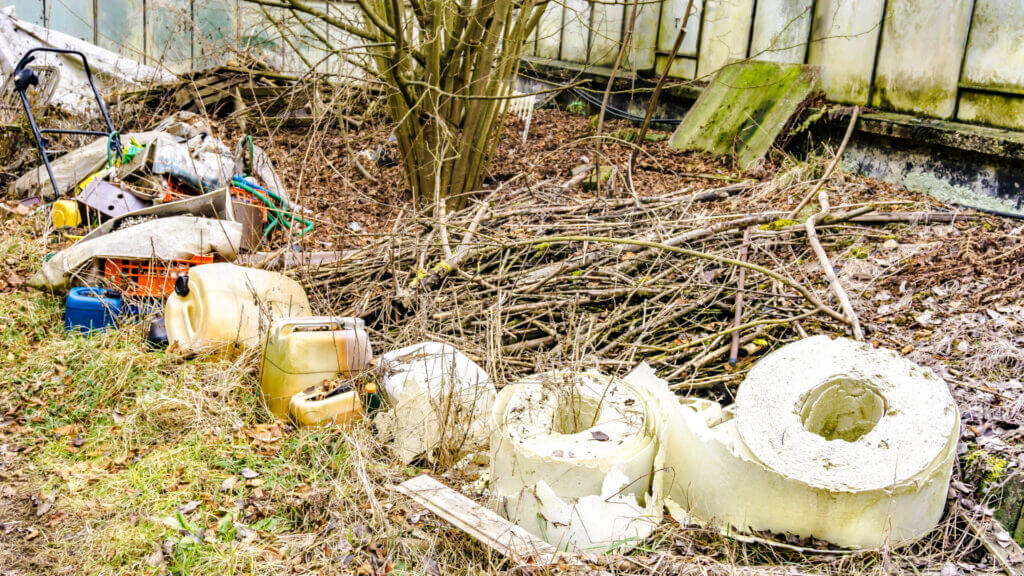
Obey Stay Limits
Almost every public use land will have stay limits. These often vary from location to location and depend on who’s managing the land. Verify the specific stay limits associated with where you plan to camp and the requirements for moving once you reach the stay limit.
Some of the stay limits require users to obey the honor system. With so much land and so few rangers and wardens to patrol it, it’s an impossible task for them to monitor every person camping on the lands. That’s why some sites require permits or for campers to register before occupying dispersed camping spots.
Even if there’s no one policing a stay limit, you should still obey these rules, which regulate fair use and give the land time to recover between uses.
Don’t Create New Campsites or Fire Rings
While there’s some freedom in where you can camp, you can’t do it just anywhere. Creating new campsites or fire rings is frowned upon or illegal in many locations. There are often restrictions as to how close you can camp from water or the proximity of a fire to the trailhead. You don’t want to set up camp only to receive a citation or be asked to pack up and move out.
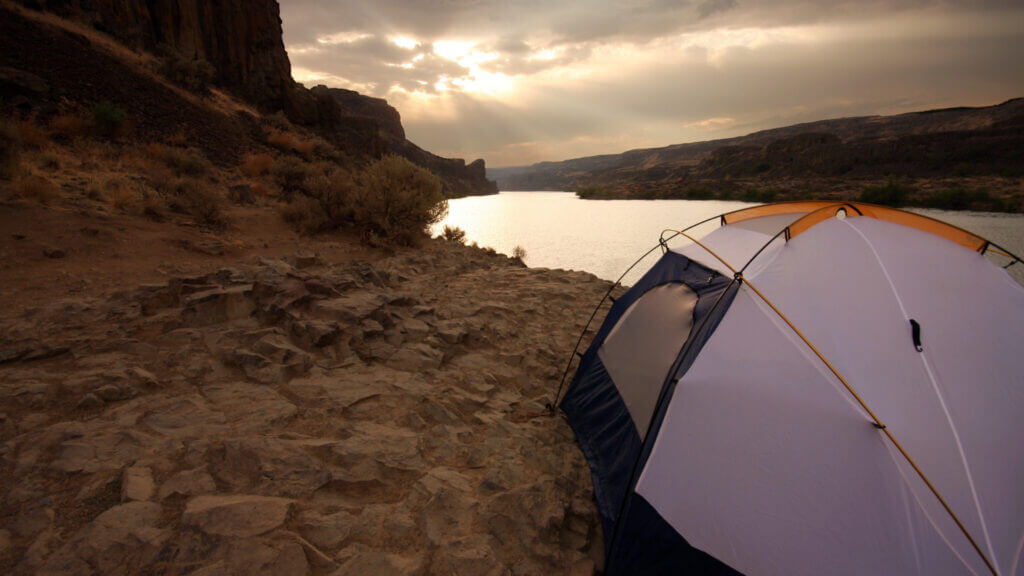
Adhere to General “Quiet Hours”
Quiet hours aren’t a suggestion; they’re a rule you should respect. Your neighbors don’t want to listen to your loud music or humming generator late into the night. Ignoring these quiet hours is incredibly rude and disrespectful to those camping around you. Being able to enjoy the peace and quiet that these lands can provide is a common reason why many venture into this area.
Charge your batteries during the day so you don’t have to run your generator at night. Turning on your generator past quiet hours is a good way to make an enemy or two with your neighbors.
Enjoy Respectful Dispersed Camping!
Whether you’re backpacking or camping in an RV, dispersed camping can be amazing. However, the opportunities for campers to use the lands are quickly disappearing as more and more areas are closing down. We all need to do our part to care for these lands so they’re available for years to come.
Do you enjoy dispersed camping on public lands?




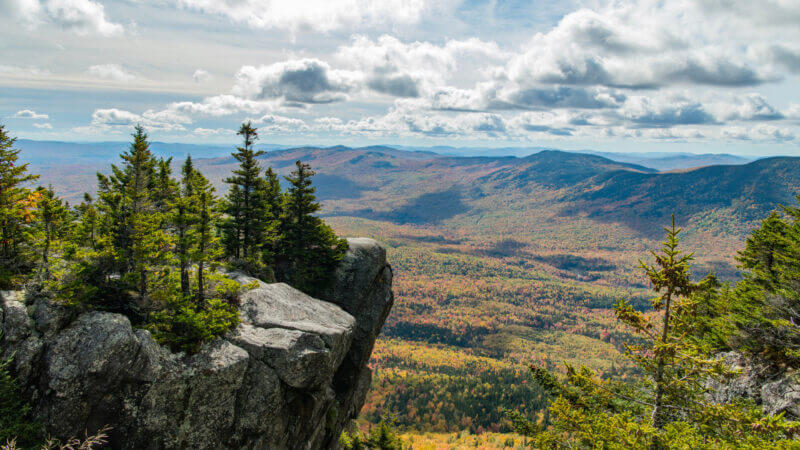
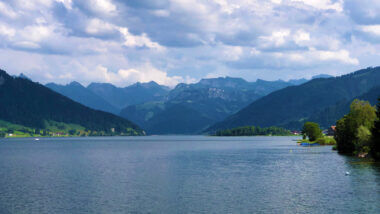
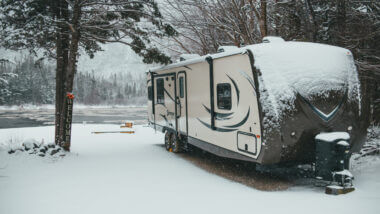
Idea! This I am sure not new, but have groups gain access to the closed areas to pick up trash and make improvements to these closed areas in order to help keep them open.
I am pretty sure the people who are the problem are not the ones reading this article. Make an example of the offenders found and I would think that word will spread that this will not be tolerated. The penalties will have to sting for it to be effective. I would also make part of the penalty a community service to the area that was violated in the first place. Those who want to abuse the privilege of camping should lose a season of it doing maintenance.
Excellent idea! If rangers can catch them!